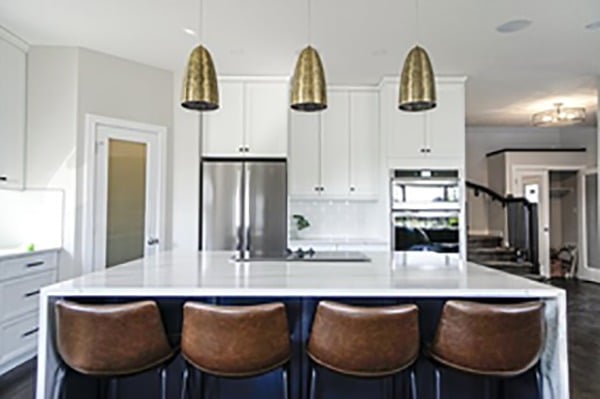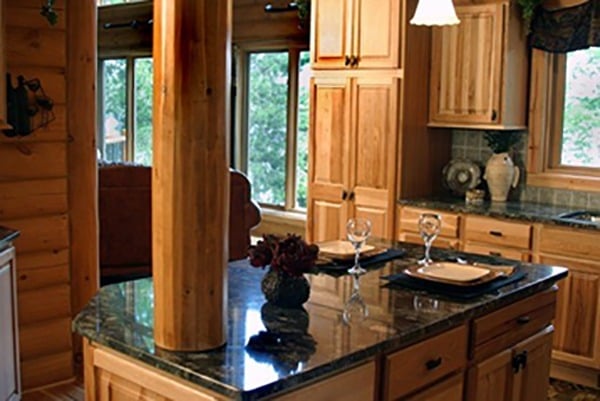Pros and Cons of Each Type of Kitchen Countertops

Looking to install new countertops? Check out our list of pros and cons for each type of kitchen countertop.


Looking to install new countertops? Check out our list of pros and cons for each type of kitchen countertop.
Are you renovating your kitchen? Well, you might be feeling a little overwhelmed by the wide range of kitchen countertop options available today. Granite countertops might be popular on HGTV, but they’re just one of the materials homeowners can choose from to build sturdy, attractive countertops.
The best type of countertop for your kitchen depends on how you plan to use them, what kind of look you’re after, how much you’re willing to spend and how much maintenance you’re willing to do to keep your new countertops in good shape. Here are the pros and cons of the different types of countertops, so you can make the best choice for your kitchen.
Wood is one of the classic countertop materials because it is affordable and versatile.
Pros of wood or butcher block include:
Cons of wood countertops include:

Granite is popular for its durability and low maintenance, but it can be expensive and heavy.
Pros of granite include:
Cons of granite countertops include:
Marble is a popular alternative for those who want a stone surface with a lighter look.
Pros of marble include:
Cons of marble include:
Common acids, like those found in coffee, citrus, and alcohol, can damage it.
Solid surface countertops are where many homeowners end up after weighing the cost of stone surfaces against the flimsiness of laminate.
Pros of solid surface countertops include:
Cons of solid surface countertops include:
Thinking about coverage?
Security for your home. Protection for your budget.
Soapstone is another soft stone that’s popular for kitchen countertops.
Pros of soapstone are similar to those of marble, and include:
Cons of soapstone include:
Engineered stones, like quartzite, are made from quartz crystals held together with resin.
Pros of engineered stone include:
Cons of engineered stone include:
You don’t see many ceramic tile countertops these days, but it is an option.
Pros of ceramic tile countertops include:
Cons include:
Laminate countertops, like Formica, are a low-end option for homeowners on a budget.
Pros include:
Cons include:
For a high-end, commercial kitchen look, stainless steel is the way to go.
Pros include:
Cons include:
When you’re remodeling your kitchen, it’s important to get the functionality you need at a cost you can afford. That’s why you need to know what kitchen countertop materials are best for your needs.
Countertops are expensive. So are your home's systems and appliances. Make sure to protect your budget with an American Home Shield home warranty. While we don't cover your countertops, we cover your kitchen's appliances, along with coverage up to 23 major systems and appliances in your home.
AHS assumes no responsibility, and specifically disclaims all liability, for your use of any and all information contained herein.
Have a plan for your home when things don't go according to plan
Shop Home WarrantiesDevelopment